

DIALOGUE
A Quarterly Publication of the Regional Center of Orange County
VOLUME 39 NO. 2 • SPRING 2025
IN THE SPOTLIGHT
2025 Spotlight Award Honorees
REGIONAL CENTER OF ORANGE COUNTY HOSTED ITS 28TH ANNUAL SPOTLIGHT AWARDS
CELEBRATION on April 25 at Garden Grove’s Embassy Suites, with 350 people attending. Special guest emcee Michele Gile, on-air reporter for KCAL News and CBS Los Angeles, joined RCOC Board Chair Sandy Martin and Executive Director Larry Landauer to present the awards. Here are snapshots about the honorees.
Self-Advocate: Fernando Peña
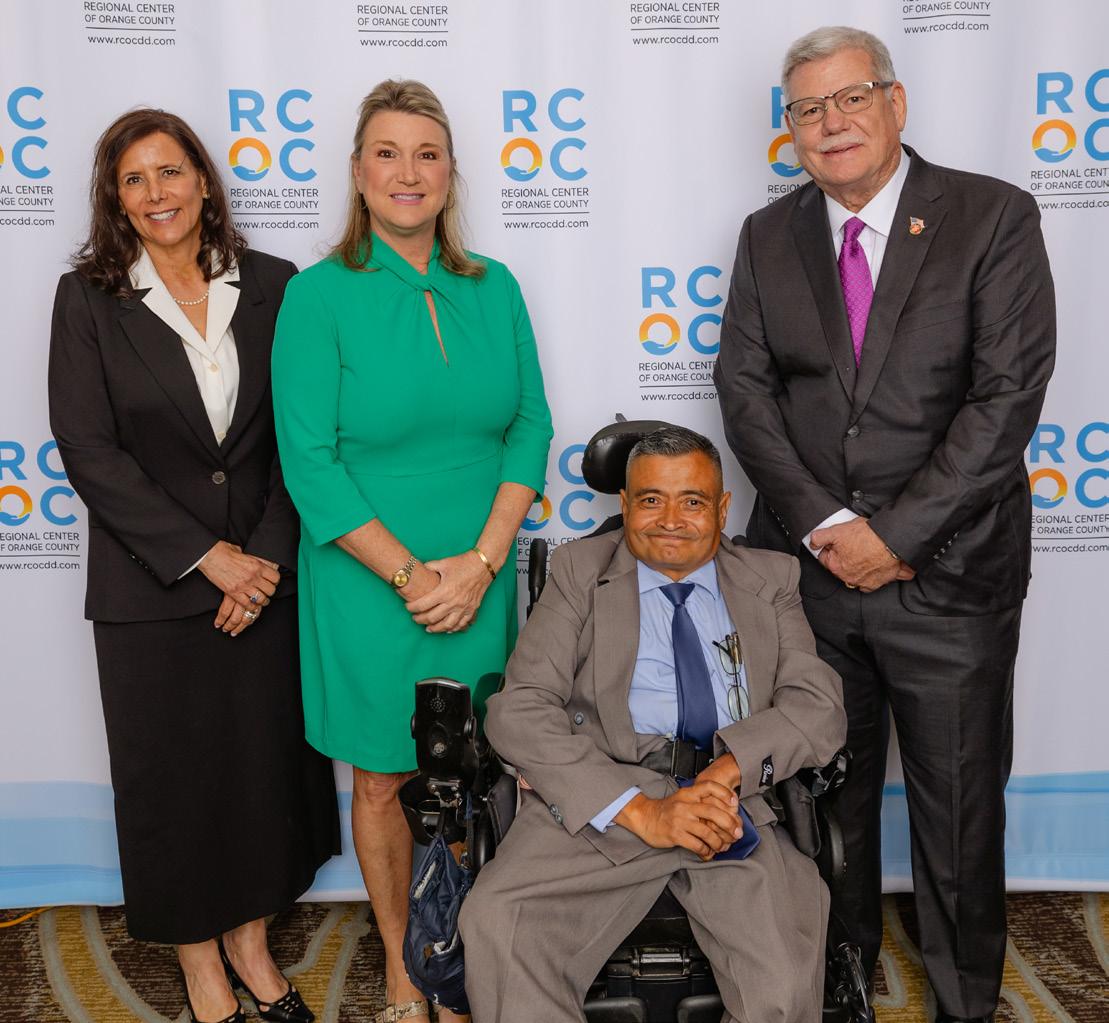
A person served by RCOC and a longtime member of the RCOC Board of Directors, Fernando has consistently championed initiatives that drive meaningful change. In addition to his Board service, Fernando has served in various positions where the voice of strong self-advocates was needed, including the statewide Developmental Centers Task Force and later the Developmental Services Task Force. Though he faces physical challenges, he maintains a focus on his abilities and takes charge of his life -- scheduling his own appointments, contacting the Social Security Administration regarding his benefits, actively seeking employment, and even watching YouTube videos to improve himself or troubleshoot his wheelchair. Fernando has also participated in the annual American Heart Association walk for the past three years.
Direct Support Professional: Alex Sanchez
A dedicated Direct Support Professional at the YMCA of Orange County, Alex was honored for a decade of service that has made a lasting impact on the lives of YMCA’s New Horizons program participants. Alex’s exceptional commitment and keen ability to foster meaningful connections is both inspiring and empowering for the individuals with disabilities he serves.
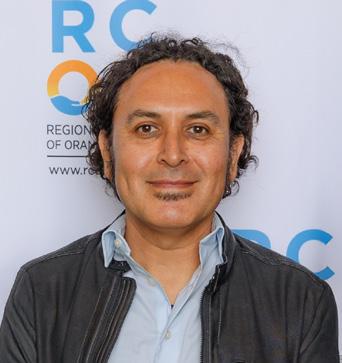
Pictured (L-R): RCOC Board Chair Sandy Martin, KCAL News/CBS Los Angeles’ Michele Gile, Fernando Peña and RCOC Executive Director Larry Landauer.
DIALOGUE
This newsletter can also be read online at RCOC’s website: www.rcocdd.com
Copyright © 2025
Board of Directors
Sandy Martin, Chair
Meena Chockalingam Bedekar, Vice Chair
Jacqueline Nguyen, Treasurer
Yvonne Kluttz, Secretary
Marcell Bassett
Bruce Hall
Frances M.K. Hernandez
Amy Jessee
Liza Krassner
Lorena Medina
Hilda Mendez
Chinh Nguyen
Fernando Peña
Rick Perez
Please check the Monthly Calendar on RCOC’s website for the most up-to-date information regarding Board meeting dates and format.
RCOC Administration
Larry Landauer, Executive Director
Christina Petteruto, General Counsel
Marta Vasquez, Chief Financial Officer
Jerrod Bonner, Information Technology Director
Arturo Cazares, Director of Community Services
Bonnie Ivers, Psy.D., Clinical Director
Jennifer Montañez, Director of Case Management
Stacy Wong, Human Resources Director
Carmen Gonzalez, Central Area Manager
Rachel Khorana, Intake Area Manager
Carie Otto, West Area Manager
Greg Shimada, Associate Director of Information Technology
Jack Stanton, Associate Director of Housing
Sean Watson, Associate Director, Risk Management
Three New Members Appointed to RCOC Board
THE RCOC BOARD OF DIRECTORS HAS APPOINTED THREE INDIVIDUALS TO SERVE AS UNPAID VOLUNTEERS ON THE BOARD.
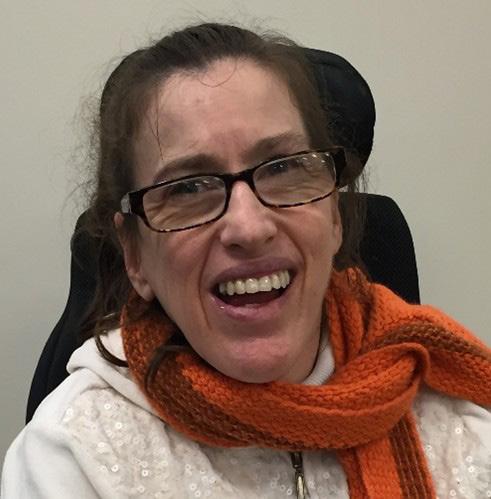
Amy Jessee has a developmental disability and receives services from RCOC. A strong selfadvocate at Alliance of Abilities/Integrity House, she helps with person-centered and safety trainings, and assists with fundraising events for the Pacific Marine Mammal Center. She has previously served on the Board.
Liza Krassner is the parent of an adult child with autism. Retired from UC Irvine and active in numerous philanthropic endeavors, she is a previous RCOC and Association of Regional Center Agencies (ARCA) board member with a strong understanding of the complexity of state policies and legislation affecting those with developmental disabilities.
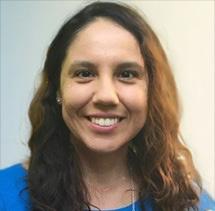
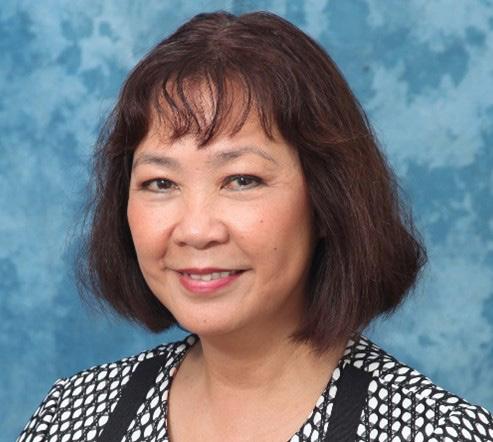
Lorena Medina is an accounting manager and 20-year CPA with an MBA in finance and accounting who has a deep sense of connection to her community. She was caregiver for her sister Rachel, who had an intellectual disability, until Rachel’s death in 2017 and strongly supports inclusion, empathy and advocacy for individuals with disabilities.
Updated Recreation Resources Guide is Available
Looking for fun and active ways to keep yourself or your children with developmental disabilities active during summer break? Be sure to check out RCOC’s Recreation Resources Guide. Updated for 2025, the Guide also includes a link to our frequently updated list of programs that meet the HCBS requirements for social-recreational funding through RCOC.

Click on the QR code or go to www.rcocdd.com/community-support to download the Guide in English, Spanish or Vietnamese.

RCOC Introduces Life Care Portfolio
By Larry Landauer, Executive Director
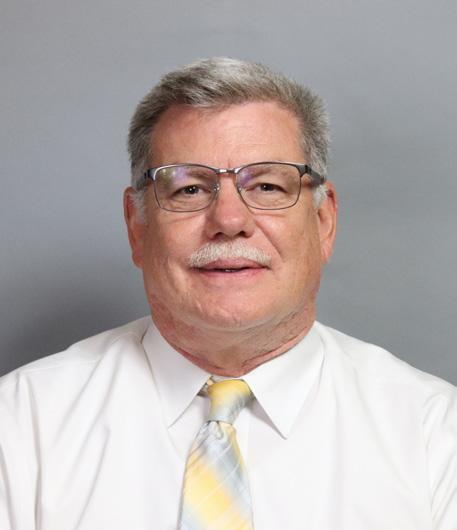
MANY OF US HAVE EXPERIENCED SITUATIONS WHEN THE ONE PERSON WHO HAD SPECIAL KNOWLEDGE OR KEY PIECES OF INFORMATION WE NEEDED WASN’T REACHABLE. While this may sometimes only cause inconvenience, in a true emergency or health crisis, it can be devastating for a family. This is especially true when the primary caregiver for a person with disabilities becomes incapable of caring for them, and only that caregiver knows key details about the person’s life, condition and preferences.
Our team had these situations in mind when they created RCOC’s new Life Care Portfolio. The Portfolio simplifies the process for organizing health, life, work, and educational documentation pertaining to a loved one with disabilities.
The Portfolio simplifies the process for organizing health, life, work, and educational documentation pertaining to a loved one with disabilities.
Divided into eight sections, it covers virtually all aspects of a person’s life, from basic facts about that person, to routines and living situation, essential health and medical information, and financial accounts, work or educational documentation, and more.
As it’s designed to be comprehensive and able to accommodate diverse individual and family situations, some sections may not be applicable to you. However, each user can tailor the Portfolio to include only the information they
need, and it can be updated over time as the person with disabilities grows and needs change.
Already, we’ve had families tell us how completing the Life Care Portfolio has given them greater peace of mind, knowing that if another family member needs to step in to help in an emergency, they will have the information they need to ensure continuity of care for the child or adult with disabilities.
Where to Learn More
Available as a fillable PDF file on RCOC’s website, the Life Care Portfolio is posted in English, Spanish, Vietnamese, Korean and Chinese.
Available as a fillable PDF file on RCOC’s website, the Life Care Portfolio is posted in English, Spanish, Vietnamese, Korean and Chinese.
If you’re interested in using this valuable tool to organize information about your loved one, simply scan the QR code on this page using your mobile phone’s QR code reader. The link will take you to the Planning for the Future page on our website, where you can view and download the document in your preferred language.
If you don’t have access to a digital device or printer, the team at RCOC’s Comfort Connection Family Resource Center can print out a hard copy for you. And, as always, if you have any questions related to your services and supports, please reach out directly to your RCOC Service Coordinator.


PERSON-TO-PERSON
Sharing Your Voice Through Legislative Advocacy
By Yvonne Kluttz, PAC Chair and Amy Jessee, PAC Co-Chair
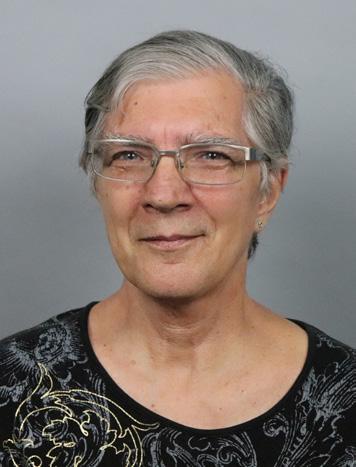

VERY SOON, THE GOVERNOR AND OUR STATE LEGISLATURE WILL BE MAKING DECISIONS ABOUT THE COMING FISCAL YEAR’S BUDGET. We don’t know yet what they have in mind for services for people with developmental disabilities and we’re hopeful that California will continue to keep the promise of the Lanterman Act.
Still, we will be paying attention and advocating to safeguard services for ourselves and others served by RCOC. As Amy says: “It’s essential that people with disabilities are not a silent community. We have thoughts. We have issues. And our voices have to be heard.”
Yvonne has regularly written letters to elected officials to share her thoughts about both policy and budget issues relating to people with disabilities. She even keeps a notebook that she continually updates with contact information for the local, state and federal elected officials representing her area.
To make her letters stand out, Yvonne includes personal examples that demonstrate how a particular program or service impacts her life. And she always asks someone she trusts to read her letters to make sure they clearly communicate what she has in mind.
The two of us want our peers to always remember that while our circles of support are very important, we are our most important advocate.
EVERYDAY
WELLNESS: Know Your Numbers
YOU’VE PROBABLY HEARD HIGH BLOOD PRESSURE CAN CONTRIBUTE TO LOTS OF HEALTH PROBLEMS, but do you know what your numbers are? It’s easy to find out. Lots of pharmacies have automatic blood pressure readers in their stores, and at-home readers can cost as little as $20 at major retailers. Check this Centers for Disease Control (CDC) chart to see if you’re in a healthy range, and be sure to consult with your doctor if you have questions.

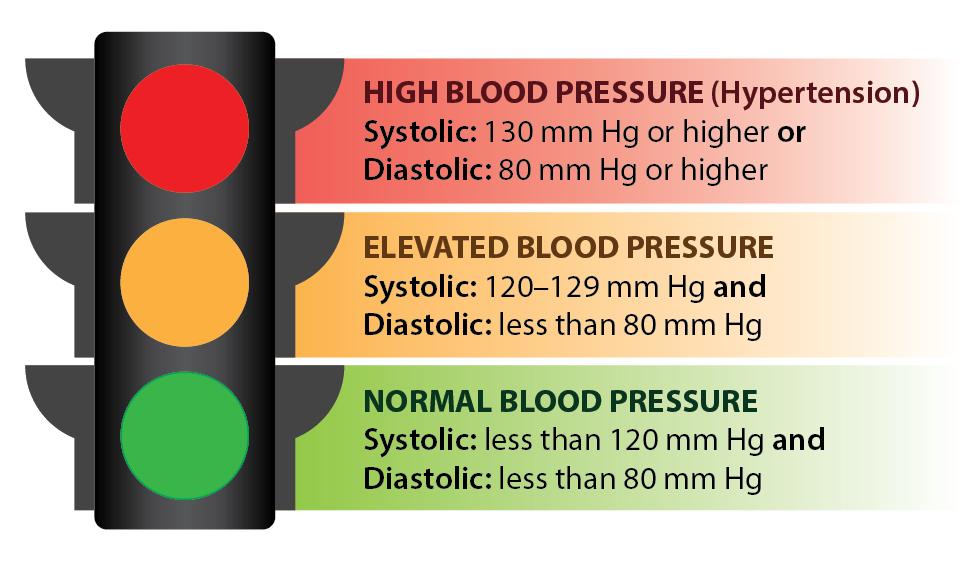

Entrepreneurship & Meaningful Employment
Thursday, June 12 at 3 p.m.
Have you ever thought about starting your own business, but didn’t know where to start? In this Zoom conversation, entrepreneur Carla Sramek and family member Hilda Sramek will discuss their experiences starting and operating the Carla’s Movie Restaurant (www.ctsartist.com) microenterprise.
This event is presented as part of the Ask the Experts workshop series organized by RCOC, the Orange County Local Partnership Agreement, California’s Department of Rehabilitation and Chapman University’s Thompson Policy Institute on Disability. Register online at https://tinyurl.com/ydtn9xec.
Potty Training Workshop
Wednesday, June 18 from 6:30 – 8:30 p.m.

This workshop will provide parents with basic and practical handson strategies they can implement to have a successful toilet training journey. Presented in English by Chrislyn Saxena, RCOC Behavior Specialist, the event takes place via Zoom with interpretation in Spanish, Vietnamese, ASL and Korean. Register on RCOC’s website.
Workshops & Events
Moving On at 3…Transition Workshop
Tuesday, June 3 from 6:30-8:30 p.m.

This transition workshop takes place virtually, in English with interpretation in Spanish, Vietnamese, ASL and Korean. It aims to educate and support parents before, during and after their child’s third birthday. Topics include assessment and eligibility determination for school district services, the Individualized Education Program (IEP) meeting, and ongoing eligibility for Regional Center services. Register on RCOC’s website (www.rcocdd.com). For information and for help with online registration, contact Patricia Garcia at 714.558.5400 or pgarcia@rcocdd.com.
Back to School and Social Recreation Resources Fair

RCOC will host a fun and informative Back to School and Social Recreation Resources Fair in July. This event will share valuable resources to help families prepare for the upcoming school year and explore social recreation opportunities. See the Events Calendar on RCOC’s website for more details.
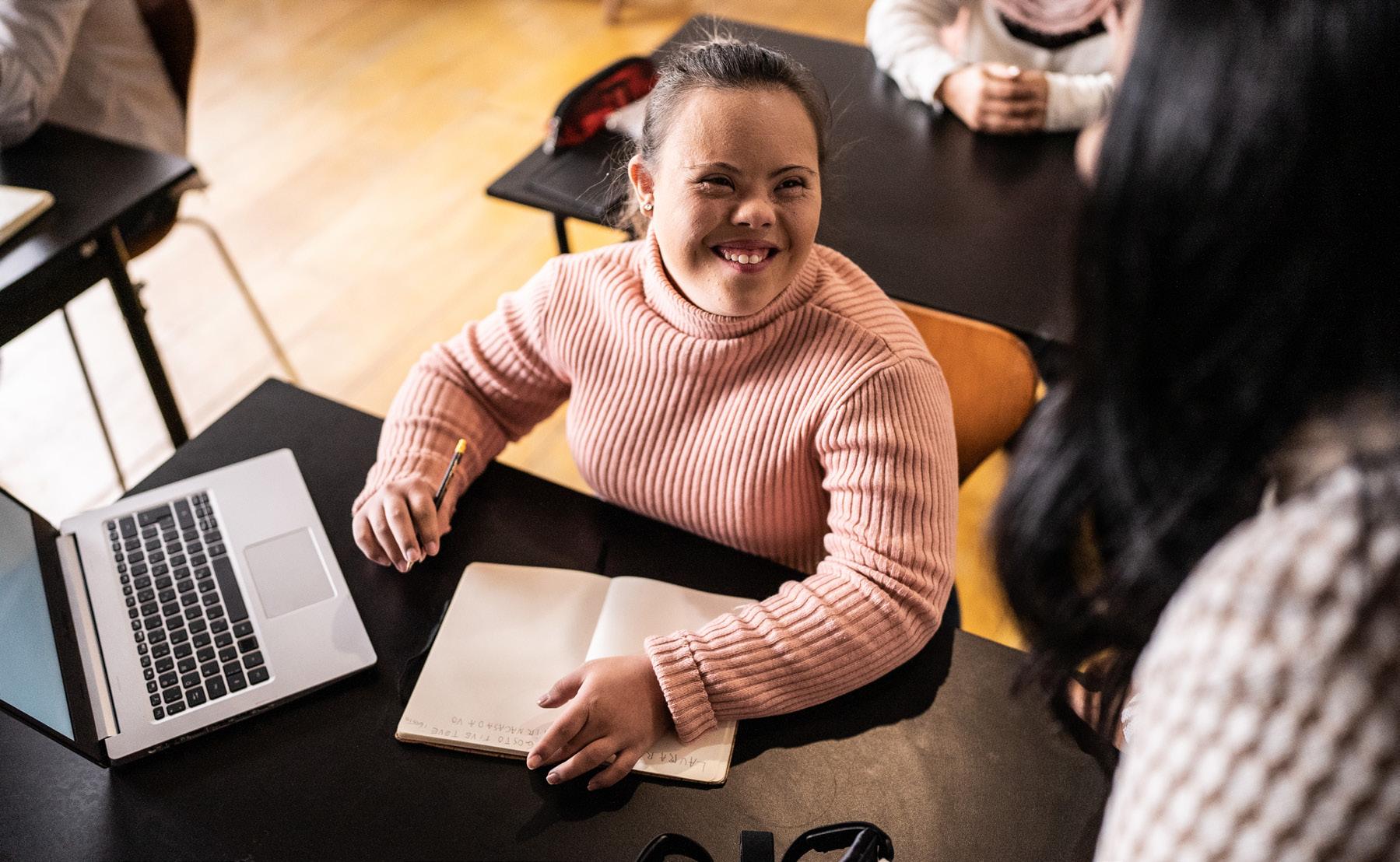
IN THIS ISSUE, WE CONTINUE OUR SERIES ON SCHOOL TRANSITIONS FOR CHILDREN – THIS TIME, FOCUSING ON KEY CONSIDERATIONS FOR THE TRANSITION FROM MIDDLE SCHOOL TO HIGH SCHOOL.
As it is for typical students, the move to high school is a significant step towards independence. The high school environment offers opportunities for growth in self-advocacy, course selection, social engagement, and future goal development. Parent/caregiver involvement is vital, so plan to visit the high school, attend activities like articulation meetings, open houses, parent nights, and registration days. Also explore the school’s website and get acquainted with schedules and extracurricular activities.
The high school environment offers opportunities for growth in self-advocacy, course selection, social engagement, and future goal development.
Get Familiar with Diploma Options
It’s important to understand California’s three diploma options, so you are clear about graduation requirements. Until a few years ago, parents of a student with an IEP had just two options to explore for how their child would graduate high school: earning the traditional diploma pursued by most typical students, or a certificate of completion.
In 2022, California established an alternative pathway to a high school diploma exclusively for
ABC’s of School Services (formerly Special Education) Transitioning from Middle School to High School
students with significant cognitive disabilities. Before the student with an IEP begins grade 10, the IEP team must determine if the student is eligible for this option.
Prepare for the Transition IEP Meeting
In the transition IEP meeting, high school staff will share program insights, and you and your child can ask questions as the team explores possible electives and activities. The IEP you create together will address goals and accommodations, with a school schedule and transition supports tailored for the student. NOTE: Supports and services provided in academic settings are also available during extracurriculars. For example, if a student has qualified for a 1:1 aide or other medical and support staff, parents have the right to ask for them to be present during their extracurriculars. Your active participation, preparation and collaboration with school staff will ensure a smoother, more successful high school experience for your child. And remember, your RCOC Service Coordinator is available to answer your questions and provide support throughout the process. They can also attend the IEP transition meeting with you to offer insights and guidance.

2025 Spotlight Award Honorees, cont.
Family Member: John Borack
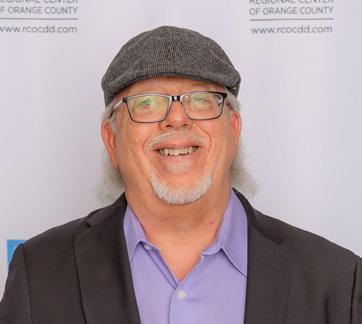
The brother of a person with developmental disabilities, John was honored as a longtime advocate and leader on the City of Fountain Valley’s Advisory Committee for Persons with Disabilities. He has been instrumental in advancing inclusion through programs such as the Committee’s bi-monthly dances which regularly draw more than 100 adults with disabilities from all over Orange County, and a new program with the Fountain Valley School District recognizing special education teachers and paraprofessionals whose students made significant progress during the school year.
Service Provider: ICEC
A non-profit, pediatric therapy clinic, ICEC has been serving Orange County families for four decades, with evidencebased services that help children from birth to five reach their cognitive, communication, motor and feeding goals. The organization received multiple nominations from families positively impacted by ICEC’s occupational therapy, physical therapy, infant development, and speech therapy programs.
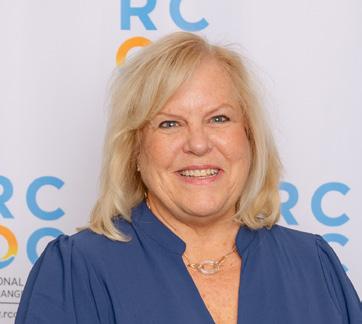
Community Partner: KASEC
The Korean American Special Education Center (KASEC) in Anaheim and Los Angeles was honored both for its long-time support for Korean American families served by RCOC, and outreach events such as the annual KASEC Dream Art Contest that invites artists with developmental disabilities to submit their work and have it showcased.
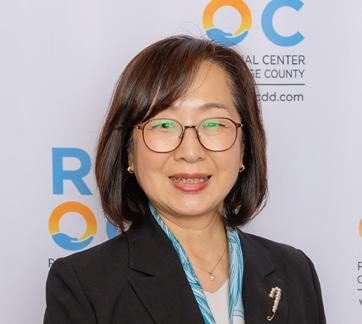
Employer: Providence St. Joseph Hospital
Providence St. Joseph Hospital was honored for its exemplary partnership with Goodwill of Orange County to successfully match five adults served by RCOC with openings in the Hospital’s Environmental Services Department (EVS). On the EVS team, these employees work alongside a job coach to disinfect all areas of the hospital and clean patient rooms, playing an important part in the care and quality of patient service at St. Joseph.
Healthcare Professional: Michael Weiss, MD
RCOC Achievement: Kyle Pontius, PhD
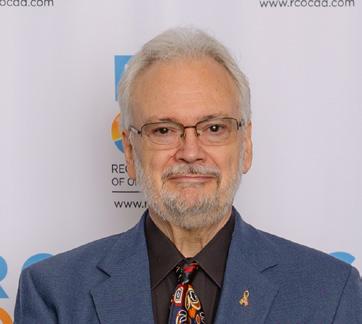
During his 22 years as a psychologist to people served by RCOC, Dr. Pontius has provided vital guidance and support to both RCOC’s Clinical Team and Intake Department, bringing kindness, patience, and a remarkable ability to communicate complex concepts and information to families.
Serving as Vice President of Population Health at Children’s Hospital Orange County, where he leads the CHOC Health Alliance, Dr. Weiss oversees services for children served by RCOC who are part of the CHOC Health Alliance network. A steadfast advocate for children with developmental disabilities and their families, he has consistently worked to enhance healthcare access and outcomes, and improve healthcare coordination for children served by RCOC.
Elected Official: Tri Ta
Assemblymember Ta served as the first Vietnamese American Mayor in the United States before his election to the State Assembly in 2022. During his time in the Assembly, he introduced two bills to address inequities in how people with autism access community-based services, and continues to advocate for the people RCOC serves.
Cont. on back cover
KASEC’s Rosa Chang
ICEC’s Pam Alexander
Center of Orange County Locations
Lifetime Achievement: Richard Rosenberg, PhD
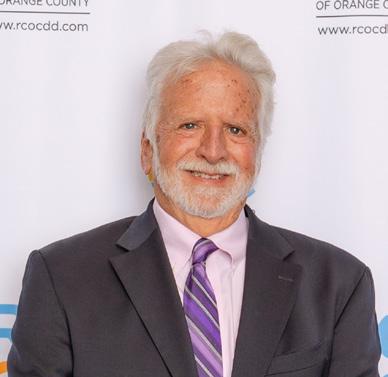
Dr. Rosenberg was honored for a lifetime of work encompassing a wide area of research, administration, teaching, and advocacy on behalf of those with developmental disabilities. A true champion for ensuring that all individuals with disabilities are afforded the opportunity to be a vital part of their communities through work and community integration, he currently provides support and technical assistance to Chapman University’s Thompson Policy Institute, specifically focusing on Transition California which provides transition-related resources, to help prepare individuals to become self-sufficient adults living quality lives. Under the Orange County Local Partnership Agreement, he works to increase partnerships for competitive integrated employment for adults with developmental disabilities. 2025 Spotlight Award Honorees, cont.
Serving Orange County’s Korean Community
REGIONAL CENTER OF ORANGE
COUNTY has prepared this insert especially for the individuals and families we serve who are most comfortable communicating in the Korean language. These events, programs and activities are presented in Korean and/or are geared specifically for those in Southern California’s Korean community. However, some are not funded or endorsed by RCOC and this information is provided as a courtesy. If you know of other opportunities you would like to share with others in the Korean community, please contact RCOC’s Derrick Nguyen at 714.558.5401 or dnguyen@rcocdd.com.
Moving On at 3…Transition Workshop
This transition workshop takes place virtually, in English with Korean interpretation. It aims to educate and support parents before, during and after their child’s third birthday. Topics include assessment and eligibility determination for school district services, the Individualized Education Program (IEP) meeting, and ongoing eligibility for Regional Center services. Register via the Monthly Calendar on RCOC’s website (www.rcocdd.com) or by scanning this QR code. For information and for help with online registration, contact Patricia Garcia at 714.558.5400 or pgarcia@rcocdd.com.
Tuesday, June 3 from 6:30-8:30 p.m.
KASEC Dream Art Contest
The Korean American Special Education Center (KASEC) announced that it is now taking submissions from artists with developmental disabilities for its 6th Annual Dream Art Contest. The theme for this year is “The World We Create Together” and the deadline to submit artwork is June 10 by 5 p.m. To participate, download the entry form at the www.kasecca.org and mail or drop off artwork with the completed entry form at 1661 N. Raymond Ave., Suite 109, Anaheim, CA 92801. For more information, call 562.926.2040 or email info@kasecca.org.


What is PersonCentered Planning?

THE RECENT INTRODUCTION OF THE NEW INDIVIDUAL PROGRAM PLAN (IPP) TEMPLATE from the Department of Developmental Services (DDS) has brought a lot of focus statewide on the concept of person-centered planning.
Person-centered planning is a process that helps the person we serve (or, in the case of children we serve, parents/caregivers) look at their hopes and dreams for the future. With that vision in mind, it’s then possible to figure out the support that’s needed from family, friends, community, and service organizations to get there. Using this approach, RCOC Service Coordinators put together Individual Program Plans (IPP) or Individual Family Service Plans (IFSP) that reflect a deeper understanding of individual and family needs.
How is Person-Centered Planning Different?
Person-centered planning focuses on the purpose behind IPP or IFSP goals. For example, for a person with challenging behaviors, a person-centered approach probes deeper than, for example, simply working to achieve a reduction in those behaviors. It recognizes that while the goal is crucial, it is a means to an end
– enabling the person with disabilities to more fully participate in life activities that matter to them, whether that be socializing with peers, attending a baseball game, landing a rewarding job, or something else.
This process also enables family members to learn new things about what’s important to their adult children or siblings, and parents of young children to gain new tools to help get their sons and daughters on a solid and rewarding life path. For example, each person served by RCOC can have a vivid one-page description that they or their family members can share with school district staff, respite staff, and even healthcare professionals who may interact with them. Continuously updated as the person grows and matures, this one-page description provides key insights about that person, what makes the person happy, and how the individual can best be supported.
Serving Orange County’s Hispanic Community
REGIONAL CENTER OF ORANGE COUNTY has prepared this insert especially for the individuals and families we serve who are most comfortable communicating in Spanish. These events, programs and activities are presented in Spanish and/or are geared specifically for those in Southern California’s Hispanic community. However, some are not funded or endorsed by RCOC and this information is provided as a courtesy. If you know of other opportunities you would like to share with other Spanish speakers, please contact Comfort Connection Family Resource Center Parent Service Coordinator Giulia Rodriguez at 714.558.5402 or grodriguez@rcocdd.com.
The Autism Community in Action (TACA) Events
For more information, visit TACA’s website at www.tacanow.org/events.
TACA Family Carnival
Sunday, June 1 from 11 a.m. – 3:30 pm Oak Canyon Park, 5303 Santiago Canyon Road in Silverado
The carnival will include activities for all ages and abilities. Ticket information will be posted on the website.
Teen and Adult Resource Fair
Sunday, August 24 from 10 a.m. – 2 p.m. Anaheim First Church of the Nazarene 1340 N. Candlewood St. in Anaheim.
Spanish presentations on Special Needs Trusts at 10:30 a.m. and Conservatorship at 11:30 a.m.
Moving On at 3… Transition Workshop
This transition workshop takes place virtually, in English with Spanish interpretation. It aims to educate and support parents before, during and after their child’s third birthday. Topics include assessment and eligibility determination for school district services, the Individualized Education Program (IEP) meeting, and ongoing eligibility for Regional Center services. Register via the Monthly Calendar on RCOC’s website (www.rcocdd.com) or by scanning this QR code. For information and for help with online registration, contact Patricia Garcia at 714.558.5400 or pgarcia@rcocdd.com.
Tuesday, June 3 6:30-8:30 p.m.
Augmentative and Alternative Communication (AAC) Workshop
Presented by The Arc of California, this Spanish-language Zoom presentation for parents covers what Augmentative and Alternative Communication (AAC) is, how speech-language pathologists can support its implementation, and how these tools and strategies can foster communication development. Scan the QR code to register.
Saturday, May 31 from 10 a.m. to Noon


What is PersonCentered Planning?

THE RECENT INTRODUCTION OF THE NEW INDIVIDUAL PROGRAM PLAN (IPP) TEMPLATE from the Department of Developmental Services (DDS) has brought a lot of focus statewide on the concept of person-centered planning.
Person-centered planning is a process that helps the person we serve (or, in the case of children we serve, parents/caregivers) look at their hopes and dreams for the future. With that vision in mind, it’s then possible to figure out the support that’s needed from family, friends, community, and service organizations to get there. Using this approach, RCOC Service Coordinators put together Individual Program Plans (IPP) or Individual Family Service Plans (IFSP) that reflect a deeper understanding of individual and family needs.
How is Person-Centered Planning Different?
Person-centered planning focuses on the purpose behind IPP or IFSP goals. For example, for a person with challenging behaviors, a person-centered approach probes deeper than, for example, simply working to achieve a reduction in those behaviors. It recognizes that while the goal is crucial, it is a means to an end
– enabling the person with disabilities to more fully participate in life activities that matter to them, whether that be socializing with peers, attending a baseball game, landing a rewarding job, or something else.
This process also enables family members to learn new things about what’s important to their adult children or siblings, and parents of young children to gain new tools to help get their sons and daughters on a solid and rewarding life path. For example, each person served by RCOC can have a vivid one-page description that they or their family members can share with school district staff, respite staff, and even healthcare professionals who may interact with them. Continuously updated as the person grows and matures, this one-page description provides key insights about that person, what makes the person happy, and how the individual can best be supported.
Serving Orange County’s Vietnamese Community
REGIONAL CENTER OF
ORANGE COUNTY has prepared this insert especially for the individuals and families we serve who are most comfortable communicating in the Vietnamese language. These events, programs and activities are presented in Vietnamese and/or are geared specifically for those in Southern California’s Vietnamese community. However, some are not funded or endorsed by RCOC and this information is provided as a courtesy. If you know of other opportunities you would like to share with others in the Vietnamese community, please contact RCOC’s Derrick Nguyen at 714.558.5401 or dnguyen@rcocdd.com.
626 OC Night Market
Inspired by the famous open-air night time bazaars of Asia, where people come together to eat, drink, socialize, and be entertained, the 626 OC Night Market features hundreds of food, merchandise and crafts vendors, as well as artists, games, live concerts, and entertainment for all ages. For information, visit www.626nightmarket.com.
May 30 – June 1
4-11 p.m.
OC Fair Grounds
88 Fair Drive
Costa Mesa
Hundreds Attend Lunar New Year Celebration
Moving On at 3…Transition Workshop

This transition workshop takes place virtually, in English with Vietnamese interpretation. It aims to educate and support parents before, during and after their child’s third birthday. Topics include assessment and eligibility determination for school district services, the Individualized Education Program (IEP) meeting, and ongoing eligibility for Regional Center services. Register via the Monthly Calendar on RCOC’s website (www.rcocdd.com) or by scanning this QR code. For information and for help with online registration, contact Patricia Garcia at 714.558.5400 or pgarcia@rcocdd.com.
Tuesday, June 3
6:30-8:30 p.m.
In partnership with the Vietnamese Parents Association of Children with Disabilities (VPDCA), RCOC was pleased to host a festive Lunar New Year Celebration for families we serve on February 9. The event took place at Stanton’s Diamond Seafood Palace and included wonderful food, a presentation on RCOC services and supports, fun activities for children and adults, and a colorful fashion show. This event was funded by the DDS Language Access and Cultural Competency program.

Tin Le and his mother Thoa Luong.
What is PersonCentered Planning?

THE RECENT INTRODUCTION OF THE NEW INDIVIDUAL PROGRAM PLAN (IPP) TEMPLATE from the Department of Developmental Services (DDS) has brought a lot of focus statewide on the concept of person-centered planning.
Person-centered planning is a process that helps the person we serve (or, in the case of children we serve, parents/caregivers) look at their hopes and dreams for the future. With that vision in mind, it’s then possible to figure out the support that’s needed from family, friends, community, and service organizations to get there. Using this approach, RCOC Service Coordinators put together Individual Program Plans (IPP) or Individual Family Service Plans (IFSP) that reflect a deeper understanding of individual and family needs.
How is Person-Centered Planning Different?
Person-centered planning focuses on the purpose behind IPP or IFSP goals. For example, for a person with challenging behaviors, a person-centered approach probes deeper than, for example, simply working to achieve a reduction in those behaviors. It recognizes that while the goal is crucial, it is a means to an end
– enabling the person with disabilities to more fully participate in life activities that matter to them, whether that be socializing with peers, attending a baseball game, landing a rewarding job, or something else.
This process also enables family members to learn new things about what’s important to their adult children or siblings, and parents of young children to gain new tools to help get their sons and daughters on a solid and rewarding life path. For example, each person served by RCOC can have a vivid one-page description that they or their family members can share with school district staff, respite staff, and even healthcare professionals who may interact with them. Continuously updated as the person grows and matures, this one-page description provides key insights about that person, what makes the person happy, and how the individual can best be supported.
